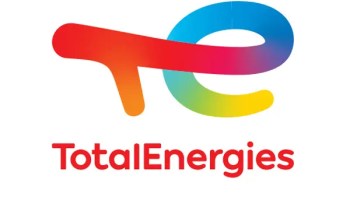
… as NCDMB promotes new funding mechanism to transform Africa’s oil and gas industry
Olusola Bello
The Nigerian Content Development and Monitoring Board (NCDMB) and the authorities of the Senegalese Petroleum Industry agreed on Tuesday to sign a Memorandum of Understanding (MoU) to guide Nigeria’s support for the development of Local Content in Senegal.
This agreement was reached during a meeting in Lagos between the Executive Secretary, Engr. Simbi Kesiye Wabote and key officials of the Senegalese Petroleum Industry. This is part of Nigeria’s strategic support to the development of Local Content across the African continent, which has already been extended to Ghana, Niger Republic, Uganda, Kenya, Gabon, Ugandan, and Congo Brazzaville.
Speaking after the meeting, the Executive Secretary stated that the MoU will provide the pathway for the details of the collaboration, stressing the need for cooperation amongst African countries for the sustainable development of the oil and gas industry in the continent.
He added that Nigeria has acquired a lot of experience in Local Content development and is well-positioned to support other African nations that had discovered hydrocarbon resources recently.
The Senegalese team was led by Mor Ndiaye Mbaye, the Technical Secretary of the National Committee for Local Content in Senegal and he stated that their nation is a new entrant to the oil industry and is keen to build local capacities and domesticate key operations in the sector in-country. He added that they decided to learn best practices in Local Content from Nigeria to make the implementation in their jurisdiction a reality.
In his remarks, the pioneer Executive Secretary of the NCDMB, Dr. Ernest Nwapa described the planned MoU between Nigeria and Senegal as evidence that key initiatives of Nigerian Content development had been consolidated over the years and had become a model for African countries. He underscored the need for the Senegalese Government to take their Local Content policy seriously, design a plan for implementation and pay attention to capacity building of their locals.
NCDMB is also promoting a new funding mechanism to transform Africa’s oil and gas industry which faces major challenges as Western nations now move investment to renewable energy development.
At the maiden African Local Content Investment Forum (ALCIF) for African Oil Producing Countries, organised by the Board in Lagos on Monday, Executive Secretary of the NCDMB, Simbi Wabote said the situation on ground challenges African nations to develop a robust response to the push for Africa to abandon her hydrocarbon resources.
He also highlighted some of the bright spots of the business, both at the national and continental levels to attract or deploy funding to the oil and gas industry, and propose some ideas to enhance continental collaboration and global support for fossil fuels.
Wabote, said the African continent is blessed with enormous human and capital resources with a population of about 1.3 billion people, out of which a significant proportion are youths.
The continent is one that needs energy to fuel its developmental and economic activities, he said, adding that African electricity requirement was estimated to be about two Terawatts out of which a paltry 162 Gigawatts or less than 10 percent is generated.
According to available data, over 640 million people, representing about half of the total population in Africa have no access to electricity while the other half with access have unreliable supply of electricity and the challenge of inadequate energy is partly the reason why Africa is faced with poverty, conflicts, migration, brain drain and ranks very low on Human Development Index.
Wabote, noted that the African continent is reputed to hold vast deposits of natural resources including oil and gas and in the last four decades, the number of African countries producing oil has increased rapidly as new discoveries are made with the latest additions being the countries of Mozambique, Uganda, Namibia, Mauritania, and South Africa.
Continuing, he said, “The expectation is that the existing and new hydrocarbon discoveries would have presented additional opportunities to address the energy challenge in the African continent but the narratives we are hearing from most of the developed countries in Europe and North America are quite disturbing.
The quest for energy transition, as it is being advocated in some European countries and other parts of the world, is now taking centre stage and as this trend progresses, the hydrocarbon resources in Africa are becoming endangered resources.
He said that whereas the addition of a new form of energy into the mix of options available for utilization by mankind has always followed a normal course of acceptance and adoption but unfortunately this is the first time a group of nations in the name of mankind is setting deadline for adoption of one form of energy to the detriment of another.
“At the COP26 event held in Glasgow in late 2021, these countries made commitments on behalf of the rest of the global community to curb methane emissions, align the finance sector with net-zero by 2050, ditch the internal combustion engine, accelerate the phase-out of coal, and end international financing for fossil fuels.
“Already, some European banks are pulling out of hydrocarbons development projects and most International Operating Companies are shying away from investments in hydrocarbon projects to avoid backlash from green energy activists.
“This unfolding scenario is of huge concern to African leaders and policy makers in the oil and gas industry. It is therefore critical that we explore the necessary steps required to address this funding and investment challenge so that our hydrocarbon resources is not abandoned below the surface like many African countries including Nigeria abandoned their coal mines.” Wabote warned.
However, the ES, stated that some African countries have made some in-roads in securing funding and investment for the development of hydrocarbon projects with strategic partnerships with countries that have not turned themselves to oil and gas adversaries such as China and India.
Other African countries are also doing their bit to develop infrastructure and processing plants for the hydrocarbon value chain but there is need to do more.
He identified one of such bright spots as the 650,000bpd Dangote Refinery which is now mechanically complete an investment he said represents a major testament of the emerging crop of bold and audacious African businessmen positioning themselves and the continent on the map of the required energy mix for mankind.
He further said that in respect of African institutions, one bright spot is the African Export-Import Bank (Afrexim Bank), a Pan-African multilateral financial institution mandated to finance and promote intra-and extra-African trade based in Cairo, Egypt.
“It is very instructive that AFREXIM Bank signed a $US1.04 billion facility with the Nigerian National Petroleum Corporation (NNPC) Limited to finance the exploration of petroleum during the second intra-Africa trade fair which held in Durban, South Africa few days after the completion of COP-26 event in Glasgow.
“For a bank that disbursed more than US$42 billion between 2016 and 2020 in support of African enterprises, there is no doubt that AFREXIM bank is an institution of note in consideration of the quest for funding hydrocarbon development projects in Africa.” he said.
In addition, Wabote expressed the confidence that the African Development Bank (AfDB), objective is to spur sustainable economic development and social progress in member countries thus contributing to poverty reduction.
He said, “AfDB has the African Development Fund (ADF) which became operational in 1974 and has cumulatively invested USD 45 billion over its 44 years of operation on the African continent. Although the Fund has not been used much in the hydrocarbon sector, there is opportunity to engage AfDB to utilize part of the Fund for gas development which could be of interest to its largely Western donor countries against the backdrop of disruption in gas supplies in Europe.”
At country level, Wabote observed that Nigeria represents a bright spot in the provision of funds that can be sourced for the execution of oil and gas projects.
The funds include the Nigerian Content Intervention Fund and other funds that can be sourced from Development Financial Institutions (DFIs) like the Bank of Industry, NEXIM bank and other special funds that are managed by the Central Bank, to mention a few.
For instance, NCDMB partnered with Bank of Industry to establish the USD300 million Nigerian Content Intervention Fund (NCI Fund). In addition, NCDMB partnered with NEXIM bank to create a USD50million fund for Working Capital and for Women in Energy.
In the area of research and development, he said the NCDMB has sponsored the patent for some inventions, and we have commenced the process for commercializing those inventions. A USD50 million Research and Development Fund was also launched to enable Research and Development in the oil and gas industry.
Beyond the provision of intervention funds as loans to industry players, the Board has also entered into partnerships with project promoters in the hydrocarbon sector.
In the aspect of Modular Refineries, NCDMB is serving as a catalyst in the development of four (4) modular refineries with the 5,000bpd Waltersmith Modular Refinery already in operation. Let me highlight that the Africa Finance Corporation (AFC), played a role in seeing the project to fruition.
The other three under construction are the 2,500bpd Duport Modular Refinery, 2,000bpd Atlantic Refinery and the 12,000bpd Azikel Modular Refinery.
“Our partnership investments in the gas value-chain which span across development of LPG storage terminals and jetties, inland gas processing to produce LPG and propane, infrastructure for gas gathering and injection into gas pipeline networks, CNG facilities, and manufacturing of composite LPG cylinders.
Specifically, these partnerships include the following:
“Partnership with NEDO Gas Processing Company in Kwale, Delta State for the establishment of 80MMscfd of Gas Processing Plant and a 300MMscfd Kwale Gas Gathering hub.
“Partnership with Triansel Gas Limited in Koko, Delta State for the 5,000MT LPG Storage and Loading Terminal Facility.
Partnership with Brass Fertiliser for the development of a 10,000MT/day Methanol Plant at Odioma in Brass
Partnership with Butane Energy to roll out LPG Bottling Plants and Depots in Abuja and ten (10) Northern States of Kano, Kaduna, Katsina, Bauchi, Nassarawa, Zamfara, Niger, Plateau, Gombe, and Jigawa states.
The 123,000 MTPA LPG production plant at Utorogu, Delta State.”





